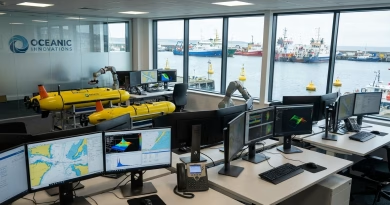New Health-Tech Startups to Watch This Year
Innovation in healthcare is accelerating—powered by AI, data platforms, and novel devices. These five startups have secured major funding, clinched enterprise partnerships, and shown early traction. Whether you’re an investor, clinician, or patient, they deserve your attention.
1. Mandolin
What they do: Mandolin’s AI-driven agents automate insurance verification for specialty medications—critical for conditions like cancer and Alzheimer’s. By autonomously contacting payers and managing exceptions, Mandolin cuts approval times from 30 days to under three.
Why it matters: Specialty drugs often face bureaucratic delays that impact patient outcomes. Mandolin’s system reduces clinical staff workload and minimizes treatment gaps.
Funding & traction: Raised $40 million in seed and Series A funding from Greylock, SignalFire, and others; now serving 700+ clinics.
2. Abridge
What they do: Abridge uses AI to transcribe doctor-patient conversations into structured clinical notes in real time, automating documentation and billing workflows.
Why it matters: Manual note-taking burdens clinicians and can lead to errors. Abridge’s solution streamlines EHR entries, improving accuracy and freeing physicians to focus on patients.
Funding & traction: Secured a $300 million round led by a16z at a $5.3 billion valuation—underscoring investor confidence in automated clinical documentation.
3. Arcadia
What they do: Arcadia aggregates and analyzes healthcare data for payers and providers, using AI to identify high-risk patients, optimize care gaps, and drive value-based care initiatives.
Why it matters: As healthcare shifts toward outcome-based reimbursement, data platforms like Arcadia are essential for uncovering actionable insights and controlling costs.
Funding & traction: Recently acquired by Nordic Capital to fuel expansion and potential IPO plans; serves clients including Aetna and Johns Hopkins Medicine.
4. K Health
What they do: K Health offers virtual primary care through an AI-backed symptom checker and telemedicine platform, delivering personalized guidance and clinician consultations at lower cost.
Why it matters: By combining population health data with individual patient inputs, K Health democratizes access to primary care, reducing unnecessary ER visits and wait times.
Funding & traction: Boasts over 10 million users and a recent Series D round valuing the company at over $1 billion, fueling international expansion.
5. Athelas
What they do: Athelas provides a remote patient monitoring solution with FDA-cleared blood analysis devices that fit in the palm of your hand, enabling at-home diagnostics for chronic conditions.
Why it matters: Continuous monitoring of metrics like CBC can detect complications early and reduce hospital readmissions. Athelas brings lab-grade testing to the patient’s home.
Funding & traction: Raised a $100 million Series C led by top health-tech investors; deployed in over 50 health systems across the U.S.
Why These Startups Matter
Collectively, these companies address major healthcare pain points:
- Administrative burden (Mandolin, Abridge)
- Data-driven decision-making (Arcadia)
- Access to care (K Health)
- At-home diagnostics (Athelas)
Each leverages AI or novel hardware to improve efficiency, reduce costs, and—most importantly—enhance patient outcomes.
Looking Ahead
2025 is poised to be a breakout year for health-tech investment and innovation. Watch how these startups evolve, form strategic partnerships, and navigate regulatory pathways. Their success will shape how medicine is practiced—and experienced—in the years to come.




